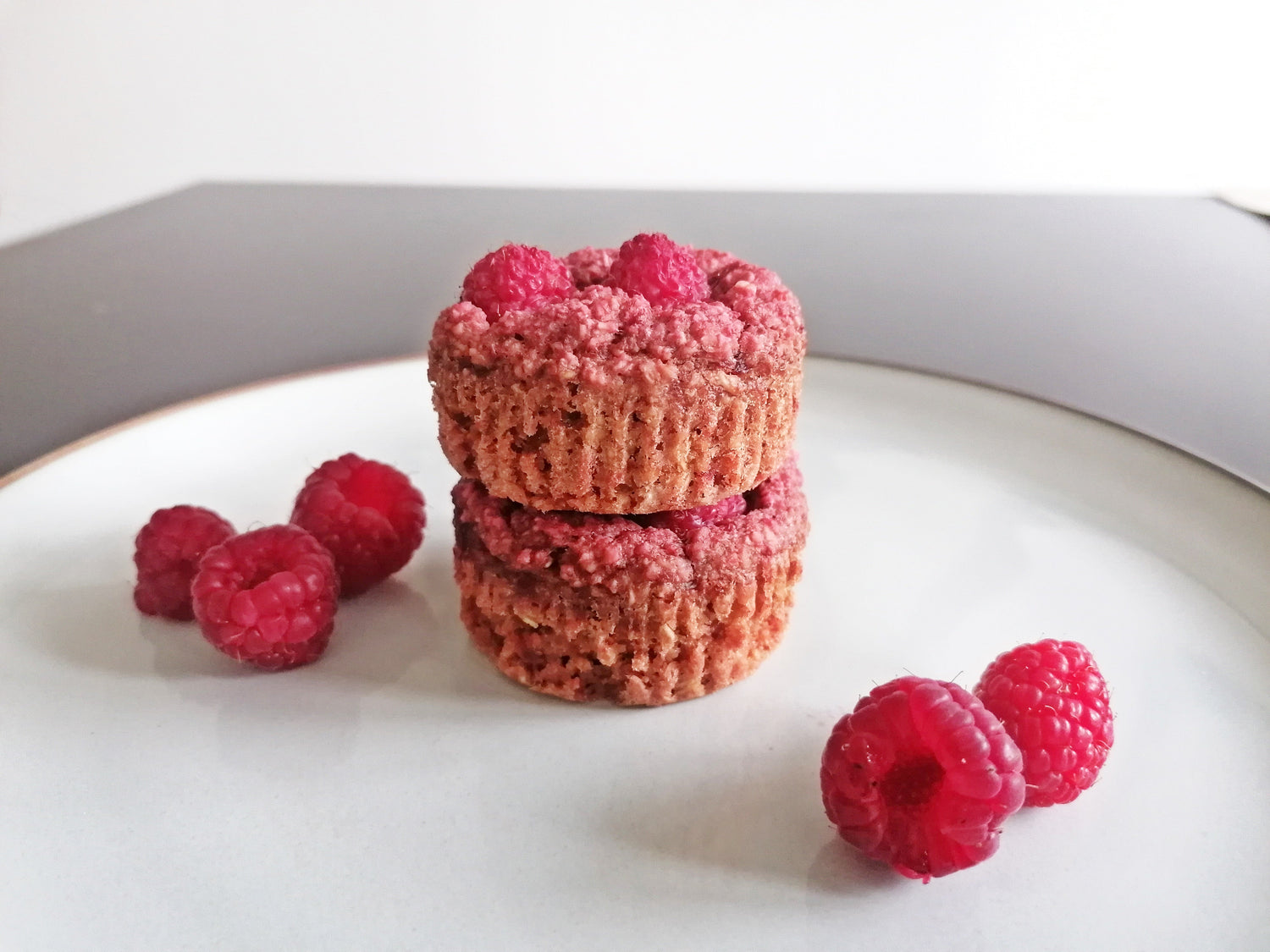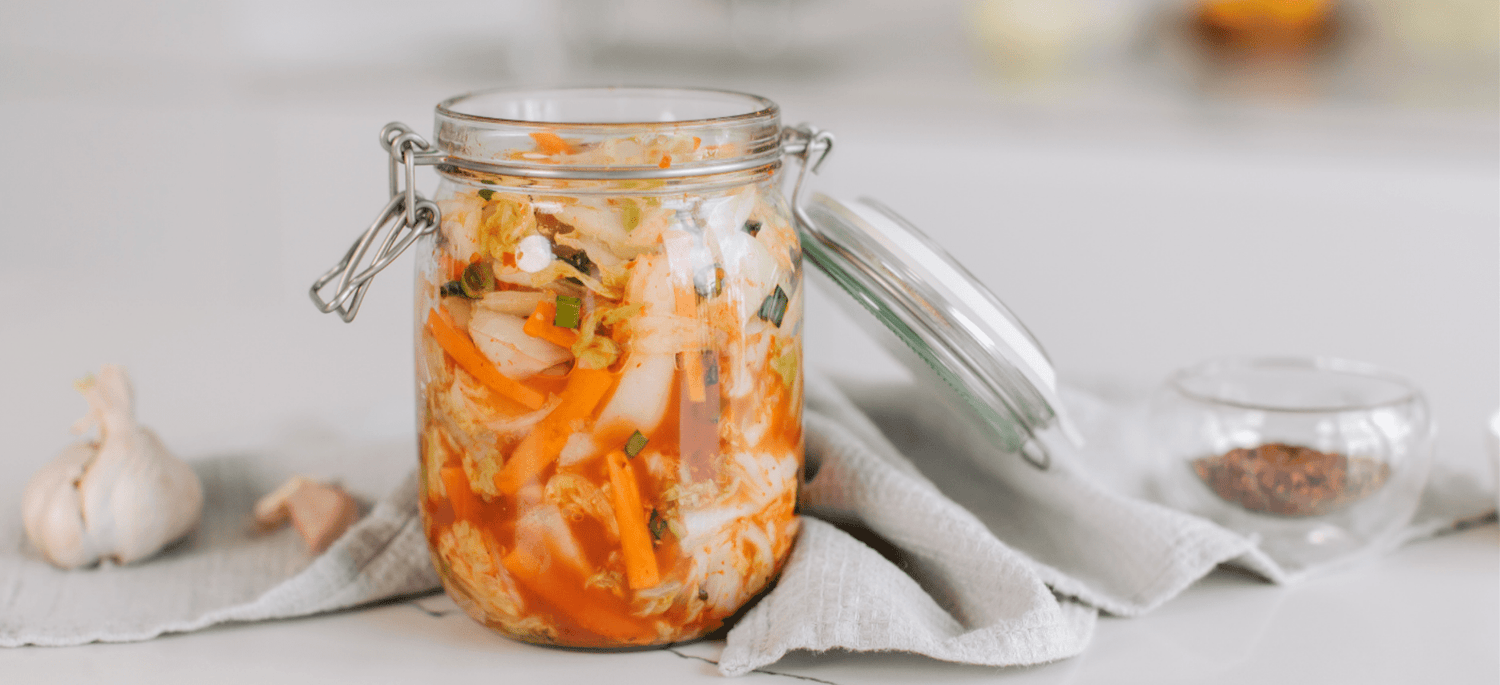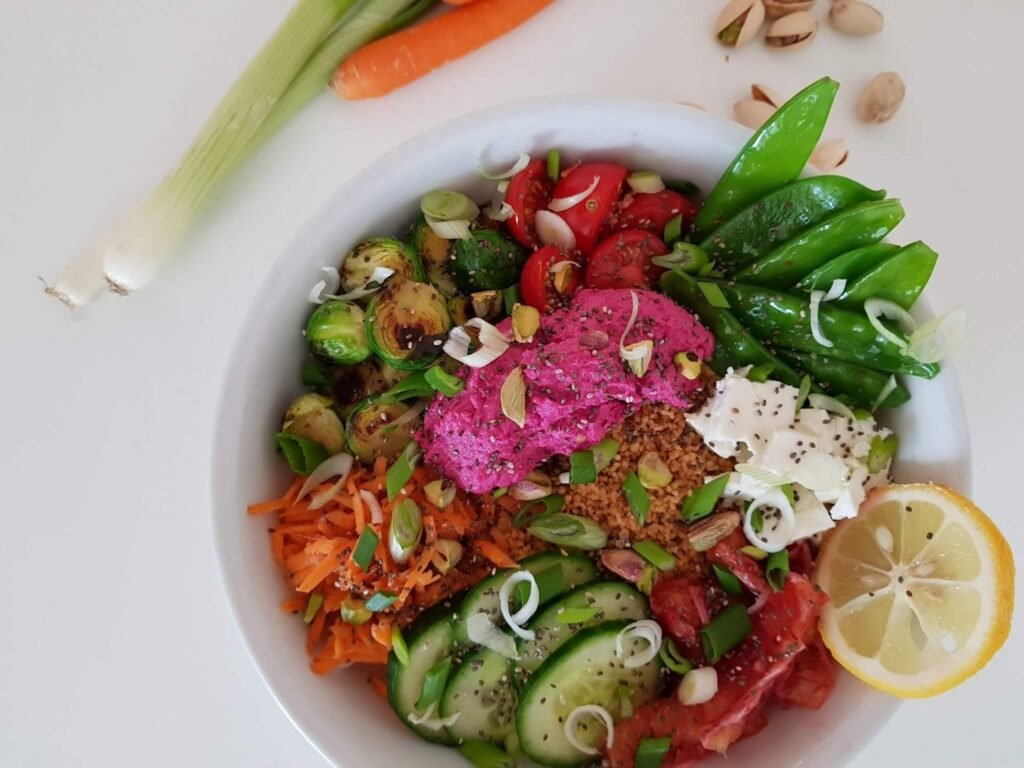Even the healthiest and most athletic of us sometimes feel the need for something sweet . Unfortunately, sweet often means a lot of unhealthy sugar and other ingredients that should only be consumed in moderation. That’s why we searched for a healthy microbiome-friendly cake recipe that you can even eat for breakfast. It’s paleo & gluten-free and easy to make. May we introduce: A healthy carrot cake . Of course, as always, we made sure to use gut-friendly ingredients with extra benefits!
For the cake you need the following ingredients
- 4 eggs
- 60 g coconut oil
- 200 g carrots
- 100 g dates, pitted
- 70 g ground almonds
- 1 pinch cinnamon
- 1 tsp fresh, grated ginger
- 1 pinch salt
- 1 tsp baking powder
For the frosting :
- 50 g grated coconut
- 50 g coconut oil
- 20 g honey
- 1 tbsp lemon juice
How to make it: Instructions
The carrot cake recipe is intended for a small cake tin with a diameter of 17 cm. If you want to make a larger quantity, you can simply double the amount. Make sure to adjust the baking time accordingly.
 Carrots are a wonderful source of vitamin A and contain plenty of fibre for your gut bacteria
Carrots are a wonderful source of vitamin A and contain plenty of fibre for your gut bacteria
The cake
Preheat the oven to 175 degrees. Mix the eggs with the dates until smooth. Grate the carrots as finely as possible. Now put all the ingredients in order in a bowl and stir them together with a whisk. Grease the tin with coconut oil and pour the mixture into the tin.
Place the cake in the preheated oven (175 degrees) for 40-50 minutes. Cover the top of the cake with baking paper after about 20 minutes to prevent it from getting too dark.
The frosting
Put the coconut flakes, coconut oil, honey and lemon juice in a blender and wait until you have a smooth mixture. Then garnish the cooled! cake with the frosting. If you like, you can garnish the carrot cake with a few nuts.

The benefits of ingredients for your health
Eggs
Eggs are a good source of protein to meet your daily requirements.
Carrots
Carrots are a wonderful source of vitamin A and contain plenty of fibre for your gut bacteria. In addition, carrots, like apples, are high in pectin, which promotes healthy gut bacteria growth. (1)
Dates
Dates contain tryptophan , an essential amino acid that can be converted into serotonin (=neurotransmitter). Tryptophan can help reduce repressive moods, anxiety and stress and increase performance. (2)
Almonds
The flavonoid proanthocyanidin found in almonds can stimulate fat cells to secrete insulin, thus lowering blood sugar levels. In addition, almonds contain antioxidants that can bind free radicals while supporting metabolism. In addition, they minimise the risk of irritation of the digestive tract. In addition, almonds contain a lot of vitamin E and dietary fibre. (3)
Cinnamon
Promotes good bacteria and hinders bad ones. Cinnamon contains many antioxidants that can bind free radicals and support your metabolism at the same time. The flavonoid proanthocyanidin found in cinnamon can stimulate fat cells to release insulin, lowering your blood sugar levels. In addition, cinnamon can help support digestion and minimise the risk of irritation to the digestive tract. (3)
Ginger
The bitter substances and essential oils contained in ginger activate the peristalsis of the intestines and can thus relieve flatulence, for example. In addition, ginger supports your metabolism. (3)
Honey
Honey is a prebiotic food, which can support healthy gut bacteria. (4)
Lemon juice
Lemons are rich in vitamin C and improve the digestive process. (5)
Did you like the recipe? Then have fun making it yourself. By the way, the original recipe is from Paleo360 where you can find many more delicious & healthy recipes. If you make one of our recipes, please share it on social media, tag us @mybioma and we will repost your post.
Author - Anni Grimm
Note
This article is intended for informational purposes only and should not be construed as medical information or instructions. The recipes are intended for inspiration and are not intended as therapeutic measures. If you have any health problems, we recommend that you contact a doctor or other expert immediately.
References
- Maier TV, Lucio M, Lee LH, VerBerkmoes NC, Brislawn CJ, Bernhardt J, Lamendella R, McDermott JE, Bergeron N, Heinzmann SS, Morton JT, González A, Ackermann G, Knight R, Riedel K, Krauss RM, Schmitt-Kopplin P, Jansson JK. Impact of Dietary Resistant Starch on the Human Gut Microbiome, Metaproteome, and Metabolome. mBio. 2017 Oct 17;8(5):e01343-17. doi: 10.1128/mBio.01343-17. PMID: 29042495; PMCID: PMC5646248.
- Lindseth G, Helland B, Caspers J. The effects of dietary tryptophan on affective disorders. Arch Psychiatr Nurs. 2015 Apr;29(2):102-7. doi: 10.1016/j.apnu.2014.11.008. Epub 2014 Dec 9. PMID: 25858202; PMCID: PMC4393508
- Rowland I, Gibson G, Heinken A, Scott K, Swann J, Thiele I, Tuohy K. Gut microbiota functions: metabolism of nutrients and other food components. Eur J Nutr. 2018 Feb;57(1):1-24. doi: 10.1007/s00394-017-1445-8. Epub 2017 Apr 9. PMID: 28393285; PMCID: PMC5847071.
- Anand Mohan, Siew-Young Quek, Noemi Gutierrez-Maddox, Yihuai Gao, Quan Shu, Effect of honey in improving the gut microbial balance, Food Quality and Safety, Volume 1, Issue 2, 1 May 2017, Pages 107–115
- Europäisches Arzneibuch (https://www.edqm.eu)





